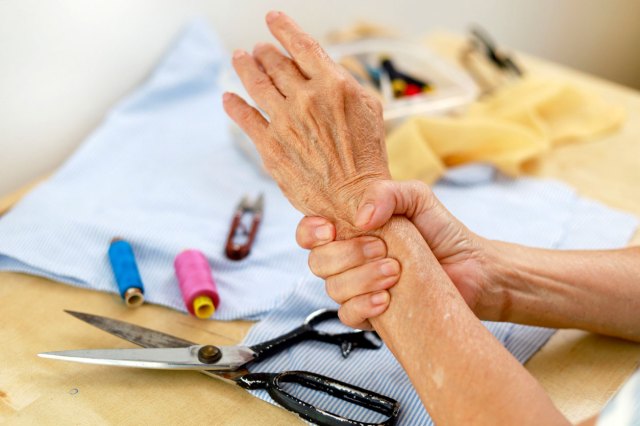The sound of cracking knuckles is instantly recognizable. (And let’s be honest, it’s kind of annoying to those around you.) People often cite the habit as a way to relieve tension, stress, and anxiety, and they’ve been doing it since childhood. However, with that comes a certain level of guilt. As good as it feels to crack your knuckles, are you also harming your joints? Is it true that it can cause arthritis? What are you really doing to your knuckles when you crack them? Read on to find out.

What Happens When You Crack Your Knuckles
When you crack your knuckles, you’re not actually cracking any bones, and the popping noise isn’t a dislocation or a breakage. Adjusting your knuckles releases gas bubbles in your body’s synovial fluid (the liquid that keeps your joints lubricated). The nitrous gas bubbles that build up are totally natural. Releasing them by cracking your knuckles only allows more to build up over time, which is why you often can’t crack your knuckles too many times in a row.

Does Cracking Your Knuckles Cause Arthritis?
The good news is that cracking your knuckles has no inherent downside. The act in and of itself doesn’t cause long-term damage, enlarge your knuckles, or lead to arthritis. However, this also doesn’t mean cracking your knuckles is totally safe. Repetitive awkward movement may increase your chances of injury, and people who already suffer from joint conditions or arthritis might worsen their symptoms.

What Not to Do When Cracking Your Knuckles
If you are a knuckle-cracker, be sure you’re not pulling or twisting your fingers too hard to crack or pop your joints. Too much force increases the risk of dislocating or even breaking a finger. Also, pay attention to how your joints feel. The motion shouldn’t cause pain. If you notice any pain, swelling, or enlarging joints, you might have an underlying condition like arthritis or gout, and should consult with a doctor. This applies to any part of your body that you crack — always listen to how your body is responding and never force any movements.
Featured Image Credit: fotostorm/ iStock
More From Our Network
Better Report is part of Optimism, which publishes content that uplifts, informs, and inspires.













